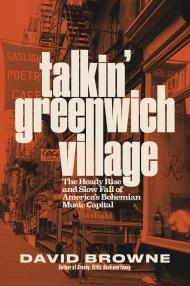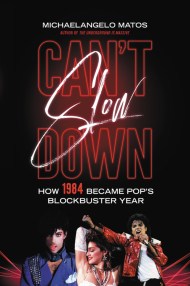Promotion
Use code BESTBOOKS24 for 25% off sitewide + free shipping over $35
By clicking “Accept,” you agree to the use of cookies and similar technologies on your device as set forth in our Cookie Policy and our Privacy Policy. Please note that certain cookies are essential for this website to function properly and do not require user consent to be deployed.
Music
A Subversive History
Contributors
By Ted Gioia
Read by Jamie Renell
Formats and Prices
Format
Format:
- Audiobook Download (Unabridged)
- ebook $13.99 $17.99 CAD
- Hardcover $35.00 $44.00 CAD
- Trade Paperback $19.99 $24.99 CAD
This item is a preorder. Your payment method will be charged immediately, and the product is expected to ship on or around October 15, 2019. This date is subject to change due to shipping delays beyond our control.
Also available from:
Histories of music overwhelmingly suppress stories of the outsiders and rebels who created musical revolutions and instead celebrate the mainstream assimilators who borrowed innovations, diluted their impact, and disguised their sources. In Music: A Subversive History, Ted Gioia reclaims the story of music for the riffraff, insurgents, and provocateurs.
Gioia tells a four-thousand-year history of music as a global source of power, change, and upheaval. He shows how outcasts, immigrants, slaves, and others at the margins of society have repeatedly served as trailblazers of musical expression, reinventing our most cherished songs from ancient times all the way to the jazz, reggae, and hip-hop sounds of the current day.
Music: A Subversive History is essential reading for anyone interested in the meaning of music, from Sappho to the Sex Pistols to Spotify.
Genre:
-
"A dauntingly ambitious, obsessively researched labor of cultural provocation."Robert Christgau, Los Angeles Times
-
"[A] sweeping study...The author aims to subvert our ideas about music history-essentially, Western classical tradition and its contemporary and popular offshoots-in part by removing its pedestals...Gioia challenges notions of progress based solely on aesthetic or stylistic innovation...characteriz[ing] music history as a cyclical power struggle with shifting battle lines."Larry Blumenfeld, Wall Street Journal
-
"Music: A Subversive History is by some distance the most wide-ranging and provocative thing he's [Gioia's] come up with... In terms of scope, well, put it this way: it starts out talking about a bear's thighbone that Neanderthal hunters apparently turned into a primitive flute somewhere between 43,000 and 82,000 years ago and ends up, 450 pages later, discussing K-pop and EDM."Guardian
-
"Gioia's great strength as a writer is his sensitivity to the vast range of all the world's music, and his impressive grasp of the literature on world music, jazz and pop, as well as classical music... This book feels like the summation of a lifetime's avid musical exploration and reading. It has an epic sweep and passionate engagement with the topic that carries one along irresistibly."Telegraph
-
"In this excellent history, music critic Gioia (How to Listen to Jazz) dazzles with tales of how music grew out of violence, sex, and rebellion... Gioia's richly told narrative provides fresh insights into the history of music."Publishers Weekly, starred review
-
"Gioia draws on social science research into the past and present to forge a sweeping and enthralling account of music as an agency of human change."Booklist, starred review
-
"I can't speak highly enough about Music: A Subversive History...[Gioia] is always fun to read...I suspect that academic scholars will pooh-pooh aspects of Music. That's as it should be...Gioia remains something of an outsider critic, convinced that the passion for destruction can be a creative passion."Michael Dirda, Washington Post
-
"Scintillating... Gioia is writing about evolution and magic-this is a music history that synthesizes both Darwin and Frazer, and, at least in terms of writing for a general audience, is the first to do so. We need this story."Brooklyn Rail
-
"Gioia's argument is persuasive and offers a wealth of possibilities for further exploration. This fascinating recontextualization will appeal to anyone who ever wondered why "Hound Dog" became a hit only when Elvis Presley covered it."Library Journal
-
"A revisionist history highlights music's connections to violence, disruption, and power. In a sweeping survey that begins in "pre-human natural soundscapes," music historian Gioia (How To Listen to Jazz, 2016, etc.) examines changes and innovation in music, arguing vigorously that the music produced by "peasants and plebeians, slaves and bohemians, renegades and outcasts" reflected and influenced social, cultural, and political life... A bold, fresh, and informative chronicle of music's evolution and cultural meaning."Kirkus
-
"Gioia's sprawling and deeply interesting history of music defies all stereotypes of music scholarship. This is rich work that provokes many fascinating questions. Scientists and humanists alike will find plenty to disagree with, but isn't that the point? 'A subversive history', indeed."Samuel Mehr, Director, The Music Lab, Harvard University
-
"In this meticulously-researched yet thoroughly page-turning book, Gioia argues for the universality of music from all cultures and eras. Subversives from Sappho to Mozart and Charlie Parker are given new perspective -- as is the role of the church and other arts-shaping institutions. Music of emotion is looked at alongside the music of political power in a fascinating way by a master writer and critical thinker. This is a must-read for those of us for whom music has a central role in our daily lives."Fred Hersch, pianist and composer, and author of Good Things Happen Slowly: A Life In and Out of Jazz
-
"As a fan of 'big histories' that sweep through space and time, I gobbled this one like candy as I found myself astounded by some idea, some fact, some source, some dots connected into a fast-reading big picture that takes in Roman pantomime riots, Occitan troubadours, churchbells, blues, Afrofuturism, surveillance capitalism, and much more. A must for music heads."Ned Sublette, author of Cuba and Its Music and The World That Made New Orleans
-
"One of the most perceptive writers on music has cut a wide swath down the path of history, illuminating details often left in the shadows and broadening our understanding of all things sonic. Gioia vividly points out that the wheels of cultural advancement are often turned by the countless unsung heroes of inventiveness. A mind opening and totally engaging read!"Terry Riley
- On Sale
- Oct 15, 2019
- Publisher
- Hachette Audio
- ISBN-13
- 9781549150562
Newsletter Signup
By clicking ‘Sign Up,’ I acknowledge that I have read and agree to Hachette Book Group’s Privacy Policy and Terms of Use







